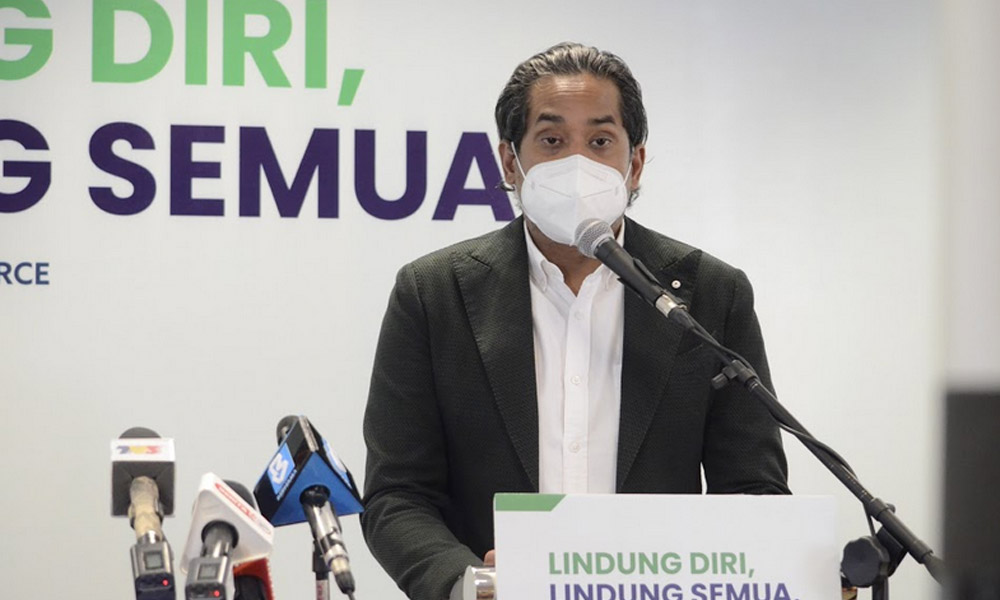The government has decided to reduce the dosing interval for the AstraZeneca Covid-19 vaccine to nine weeks compared to 12 weeks previously.
Malaysia began its rollout of the vaccine on May 5, meaning the earliest recipients of the vaccine will now be eligible for their second dose on July 7 rather than July 28.
“So those who participated in the AstraZeneca first-round vaccination in May will be getting notifications for their appointment very soon,” said Special Committee on Ensuring Access to Covid-19 Vaccine Supply (JKJAV) co-chairperson Khairy Jamaluddin.
He was speaking to reporters at Kuala Lumpur International Airport today after receiving one million doses of the vaccine donated by the government of Japan.
The decision to shorten the dosing interval was made based on recommendations by JKJAV’s technical committee last week and the contribution by the Japanese government today, he said.
The minister did not explain the technical committee’s decision but had previously said the committee had been studying whether to shorten the interval for the Pfizer and AstraZeneca vaccines in light of the spread of Covid-19 variants of concern.
Previously, the government had decided on a 12-week interval for the AstraZeneca doses to provide partial protection against Covid-19 to as many people as possible in a short time. This makes it the longest dosing interval among vaccines used in Malaysia.

The longer interval is also associated with higher vaccine efficacy once the second dose is administered, compared to shorter intervals.
Yesterday, however, Health Ministry director-general Dr Noor Hisham Abdullah tweeted that one dose of either vaccine only provides 33 percent protection against symptoms caused by the Delta variant of Covid-19.
With two doses, protection improves to 88 percent for the Pfizer vaccine and 60 percent for the AstraZeneca vaccine.
For the record, most Covid-19 cases in Malaysia are either of the Beta variant or one not classified as a variant of concern. Nevertheless, some cases of the Delta variant have been found circulating locally.
Today, Noor Hisham said 18 cases of the Delta variant have been detected, compared to five cases of the Beta variant, three of the Kappa variant and two of the Alpha variant.
The Delta variant, first detected in India, is said to be more transmissible than the already highly transmissible Alpha variant and is associated with a more severe disease.
According to a report by the BBC quoting experts at Imperial College London, the Delta variant is estimated to have an R-naught of between 5 and 8, compared to 2.4 and 2.6 for the original Wuhan strain.
As for plans to vaccinate teenagers, Khairy said he will be issuing a joint statement with Health Minister Dr Adham Baba either tomorrow or early next week.
“There are some technical matters that need to be looked into first. The decision has already been made but for the public announcement, we will issue a joint statement,” he said. - Mkini




No comments:
Post a Comment
Note: Only a member of this blog may post a comment.